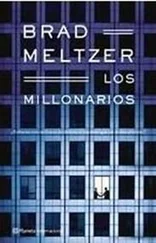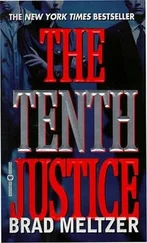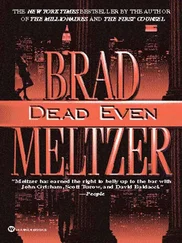Brad Meltzer - The Zero Game
Здесь есть возможность читать онлайн «Brad Meltzer - The Zero Game» весь текст электронной книги совершенно бесплатно (целиком полную версию без сокращений). В некоторых случаях можно слушать аудио, скачать через торрент в формате fb2 и присутствует краткое содержание. Жанр: Триллер, на английском языке. Описание произведения, (предисловие) а так же отзывы посетителей доступны на портале библиотеки ЛибКат.
- Название:The Zero Game
- Автор:
- Жанр:
- Год:неизвестен
- ISBN:нет данных
- Рейтинг книги:5 / 5. Голосов: 1
-
Избранное:Добавить в избранное
- Отзывы:
-
Ваша оценка:
- 100
- 1
- 2
- 3
- 4
- 5
The Zero Game: краткое содержание, описание и аннотация
Предлагаем к чтению аннотацию, описание, краткое содержание или предисловие (зависит от того, что написал сам автор книги «The Zero Game»). Если вы не нашли необходимую информацию о книге — напишите в комментариях, мы постараемся отыскать её.
The Zero Game — читать онлайн бесплатно полную книгу (весь текст) целиком
Ниже представлен текст книги, разбитый по страницам. Система сохранения места последней прочитанной страницы, позволяет с удобством читать онлайн бесплатно книгу «The Zero Game», без необходимости каждый раз заново искать на чём Вы остановились. Поставьте закладку, и сможете в любой момент перейти на страницу, на которой закончили чтение.
Интервал:
Закладка:
I nod, but he knows I’m still lost.
“Here’s the significance,” he adds. “You can calculate the mass of everything you see in a telescope, but when you add all that mass up, it’s still only ten percent of what makes up the universe. That leaves ninety percent unaccounted for. So where’s the missing ninety percent? As physicists have asked for decades: Where’s the missing mass of the universe?”
“Neutrinos?” Viv whispers, accustomed to being a student.
“Neutrinos,” Minsky says, pointing the paperclip her way. “Of course, it probably isn’t the full ninety percent, but a portion of it… they’re the leading candidate.”
“So if someone’s studying neutrinos, they’re trying to…”
“… crack open the ultimate treasure chest,” Minsky says. “The neutrinos that we’re swimming in right now were produced at the big bang, at supernovas, and even, during fusion, at the heart of the sun. Any idea what those three things have in common?”
“Big explosions?”
“Creation,” he insists. “That’s why physicists are trying to figure them out, and that’s why they gave the Nobel to Davis and Koshiba a few years back. Unlock neutrinos and you potentially unlock the nature of matter and the evolution of the universe.”
It’s a nice answer, but it doesn’t get me any closer to my real question. Time to be blunt. “Could they be used to build a weapon?”
Viv looks away from the window; Minsky cocks his head slightly, picking me apart with his scientist’s eyes. I may be sitting in front of a genius, but it doesn’t take one to know something’s up.
“Why would someone use it as a weapon?” he asks.
“I’m not saying they are — we just… we want to know if they can.”
Minsky drops the paperclip and puts his palms flat against his desk. “Exactly what type of project is this for again, Mr. Defresne?”
“Maybe I should leave that for the Congressman,” I say, trying to defuse the tension. All it does is shorten the fuse.
“Maybe it’d be best if you showed me the actual proposal for the project,” Minsky says.
“I’d love to — but right now it’s confidential.”
“Confidential?”
“Yes, sir.”
The fuse is on its last hairs. Minsky doesn’t move.
“Listen, can I be honest with you?” I ask.
“What a novel idea.”
He uses the sarcasm as a mental shove. I purposely twist in my chair and pretend he’s got control. Rope-a-dope. He may have twenty years on me, but I’ve played this game with the world’s best manipulators. Minsky’s just someone who got an A in science.
“Okay,” I begin. “Four days ago, our office got a preliminary proposal for a state-of-the-art neutrino research facility. It was hand-delivered to the Congressman at his home address.” Minsky picks up his paperclip, thinking he’s getting the inside poop.
“Who did the proposal? Government or military?” he asks.
“What makes you say that?”
“No one else can afford it. You have any idea how much these things cost? Private companies can’t pull that kind of weight.”
Viv and I exchange a glance, once again rethinking Wendell, or whoever they really are.
“What can you tell me about the project?” Minsky asks.
“According to them, it’s purely for research purposes, but when someone builds a brand-new lab a mile and a half below the earth, it tends to get people’s attention. Because of the parties involved, we want to make sure that ten years from now, this won’t be coming back to haunt us. That’s why we need to know, worst-case scenario, what’s the potential damage they can do?”
“So they’re going with an old mine, huh?” Minsky asks.
He doesn’t sound surprised. “How’d you know?” I reply.
“It’s the only way to get it done. The Kamioka lab in Japan is in an old zinc mine… Sudbury, Ontario, is in a copper mine… Know what it costs to dig a hole that deep? And then testing all the structural support? If you don’t use an old mine, you’re adding two to ten years to the project, plus billions of dollars.”
“But why do you have to be down there in the first place?” Viv asks.
Minsky looks almost annoyed by the question. “It’s the only way to shield the experiments from cosmic rays.”
“Cosmic rays?” I ask skeptically.
“They’re bombarding the earth at all times.”
“Cosmic rays are?”
“I realize it must sound a little sci-fi,” Minsky says, “but think of it like this: When you fly from coast to coast on an airplane, it’s the equivalent of one to two chest X-rays. That’s why the airlines regularly screen flight attendants to see if they’re pregnant. We’re being bathed in all sorts of particles right now. So why put your science underground? No background noise. Up here, the dial in your wristwatch is giving off radium — even with the best lead shielding, there’s interference everywhere. It’s like trying to do open-heart surgery during an earthquake. Down below the earth’s surface, all the radioactive noise is shut out, which is why it’s one of the few places where neutrinos are detectable.”
“So the fact that the lab’s underground…”
“… is pretty much a necessity,” Minsky says. “It’s the only place to pull it off. Without the mine, there’s no project.”
“Location, location, location,” Viv mutters, glancing my way. For the first time in three days, things are finally starting to make sense. All this time, we thought they wanted the mine to hide the project, but in reality, they need the mine to get the project going. That’s why they needed Matthew to slip the mine in the bill. Without the mine, they have nothing.
“Of course, what really matters is what they’re doing down there,” Minsky points out. “Do you have a schematic?”
“I do… it’s just… it’s with the Congressman,” I say, smelling the opening. “But I remember most of it — there was this huge metal sphere filled with these things called photomultiplier tubes-”
“A neutrino detector,” Minsky says. “You fill the tank with heavy water so you can stop — and therefore detect — the neutrinos. The problem is, as neutrinos fly and interact with other particles, they actually change from one identity to another, making different neutrino ‘flavors.’ It’s like a Jekyll-Hyde type of affair. That’s what makes them so hard to detect.”
“So the tubes are just for observation purposes?”
“Think of it as a big enclosed microscope. It’s an expensive endeavor. Only a few exist in the world.”
“What about the magnet?”
“What magnet?”
“There was this narrow hallway with a huge magnet and these long metal pipes that ran the entire length of the room.”
“They had an accelerator down there?” Minsky asks, confused.
“No idea — the only other thing was this big crate labeled Tungsten .”
“A tungsten block. That definitely sounds like an accelerator, but-” He cuts himself off, falling unusually silent.
“What? What’s wrong?”
“Nothing — it’s just, if you have a detector, you don’t usually have an accelerator. The noise from one… it’d interfere with the other.”
“Are you sure?”
“When it comes to neutrinos… it’s such a developing field… no one’s sure of anything. But up until now, you either study the existence of neutrinos or you study their movement.”
“So what happens if you put a detector and an accelerator together?”
“I don’t know,” Minsky says. “I’ve never heard of anyone doing it.”
“But if they did… what’s the potential application?”
“Intellectually, or-”
“Why would the government or military want it?” Viv asks, getting to the point. Sometimes, it takes a kid to cut through the nonsense. Minsky’s not the least bit thrown. He knows what happens when the government digs its nails into science.
Читать дальшеИнтервал:
Закладка:
Похожие книги на «The Zero Game»
Представляем Вашему вниманию похожие книги на «The Zero Game» списком для выбора. Мы отобрали схожую по названию и смыслу литературу в надежде предоставить читателям больше вариантов отыскать новые, интересные, ещё непрочитанные произведения.
Обсуждение, отзывы о книге «The Zero Game» и просто собственные мнения читателей. Оставьте ваши комментарии, напишите, что Вы думаете о произведении, его смысле или главных героях. Укажите что конкретно понравилось, а что нет, и почему Вы так считаете.












